Buy or gift a stand-alone digital subscription and get unlimited access to dozens of back issues for just £18.99 / $18.99 a year.
Please register at www.exacteditions.com/digital/cornucopia with your subscriber account number or contact subscriptions@cornucopia.net
Buy a digital subscription Go to the Digital EditionAt the end of March 2014, Leighton House in London hosted a recital by the famous Turkish violinist Cihat Aşkın. Chamber music concerts in this historic house began 114 years ago. Emre Aracı connects the colourful past of this magnificent building, where East and West unite, to the present, and in doing so he introduces readers to the London-based Turkish music lover Canan Maxton and ‘Talent Unlimited’, the charity which she founded.
On the internet I am slowly turning the pages of the Daily News, dated 7 July 1900, and imagining myself in the great metropolis of London, 114 years ago. A quick glance at the columns of the morning’s news informs me that the meeting of the Cabinet the day before lasted two and a half hours discussing the Chinese crisis; Queen Victoria had been graciously pleased to appoint His Highness Prince Abbas Pasha, Khedive of Egypt, the Honorary Knight Grand Cross of the Royal Victorian Order, as well as four members of His Highness’s Household, Ahmed Chefik Bey, Aziz Bey, Doctor Kautski Bey and Yawer Bey, who were made the Honorary Members of the Fourth Class.
Half way through the column I read that Signor Puccini, the composer, who had been for some weeks in London waiting for the production of his La Tosca, made his first bow of the season from the stage at Covent Garden at the performance of La Bohème “before a large audience, which included the Prince and Princess of Wales, the Duke and Duchess of Fife and the Princess Victoria, the cast comprising Madame Melba, Signor de Lucia, and Frl. Scheff”.
It is a strange feeling to be reading history forward when one actually knows the future well. As the article I am reading unfolds, following Khedive Abbas Hilmi Pasha, Puccini, La Bohème and Tosca, another news item in the continuation of the same column shows us that 114 years on, despite all the changes, much still stays the same in London. Daily News that morning also reports that arrangements were being made to establish Chamber music concerts at the Holland Park home of the late Lord Frederick Leighton (1830-1896) and that many eminent musicians, among them Sir Hubert Parry, Joseph Joachim and Otto Goldscmidt were already interested in the matter.
As I was listening to the Turkish violinist Cihat Aşkın in Lord Leighton’s studio in the evening of 31 March 2014, I was happy to live, feel and witness the positive outcome of the support once given by Parry, Joachim and Goldschmidt and to see that the tradition of music making still thrives and continues in the soul-nourishing atmosphere of Leighton House.
Once the President of the Royal Academy, Lord Leighton’s life displays a completely different style of artistic existence to that of Puccini’s Rodolfo. Befitting his title, in its aura Leighton’s home still displays, as he left it, the personality and the artistic values of a painter who created in magnificent surroundings and in great style. Despite being idiosyncratic and seemingly unreachable, this exceptionally magical romantic world filled with paintings, statues, literature and music must surely soothe the soul of every artist, who passes over its threshold and who would most likely never wish to leave.
Even though with its exterior, built in red brick, this three-story detached house looks rather traditional in keeping with the British architectural tastes of its time. Its interior amalgamates rather different aesthetic values, and proves one should not be deceived by appearances; Leighton’s house therefore at first sight should not falsely conceal from its viewer the hidden treasures within. Behind this plain façade, paintings depicting Greek mythological subjects, statues of athletic male nudes suddenly give way to an Arab Hall, beautifully adorned in Iznik tiles and a fountain in its centre crowned with a golden mosaic dome above; in this eclectic house where West and East sit side by side and sometimes fuse into each other, the concert goers not only hear the music being performed, but also the stories from the souls of the surrounding objects whispered softly into their ears. Going to a concert at Leighton House is like witnessing a living and breathing Gesamtkunstwerk.
In this great house where Leighton lived alone, concerts took place annually in the artist’s lifetime as well, which the London society greatly anticipated. Pianists including Clara Schumann and Charles Hallé, the cellist Alfredo Piatti and the greatest voices of the 19th century like Pauline Viardot Garcia and the baritone George Henschel all took part in these concerts, but it was Leighton’s close friend, the Hungarian violinist Joseph Joachim who made regular appearances. The artist Edward Burne-Jones remembered one such concert, which he attended with his wife Georgiana: “In March we went to the musical afternoon to which Leighton of his kindness bade his friends every year. There Joachim and Piatti used to be surrounded by lovers and friends, and to play in the way that artists do when every nerve is laid to rest by sympathy and every note is waited for and listened to. Who that was there can forget the feeling that ran through the room a second before the music began when Leighton took his seat to the left of the piano and uttered that tremendous ‘Hush’!”, (Daniel Robbins and Reena Suleman, Leighton House Museum, London, 2005).
On another March evening, as we were sitting and listening to the lyrical and expressive tones of Cihat Aşkın’s violin, accompanied confidently by Can Okan at the piano in the studio of Leighton House during a similarly amicable ambiance, Lord Leighton’s seat was taken by Canan Maxton. Like Leighton, Maxton also brought the audience to attention at the start of the concert; but instead of a tremendous ‘Hush’, she kindly reminded people to keep their mobiles switched off, perhaps the only indication for the audience to feel that they were in a different century. Violinist Aşkın’s concert was further linked to Joachim’s recital not only because of just Lord Frederick Leighton, The Arab Hall, Leighton House where we were, but also for the choice of his repertoire. Joachim was a close friend of Brahms and they gave many concerts together; it was a curious coincidence that Aşkın dedicated the first half of his concert entirely to the works of Brahms, playing the C minor Scherzo and the D minor Sonata, Op. 108, No. 3.
While these selections enriched the musical sonority of the evening, the second half’s choice, Mozart’s B flat major Sonata, K. 378 and Wieniawski’s Legende, Op. 17, (who incidentally had performed at Istanbul’s celebrated and long-lost Naum Theatre), Guatelli Pasha’s Osmanié March and Aşkın’s own choices from his Miniatures album were clearly a musical response to the intricate and eclectic East-West world of the great artist, whom I am sure would have much approved of this concert taking place in his temple.
Cihat Aşkın gave this recital at Leighton House in support of Talent Unlimited, a charity set up by Canan Maxton in order to help music students financially to complete their studies. Like Cihat, Canan is also a long-standing friend, and it was at Leighton House that she organised her very first concert in 2002, which eventually lead her to establish Talent Unlimited. As I remember that concert clearly, which featured soprano Tülay Uyar and pianist Linda Ang, I am happy to see now, that 12 years on, she is organising a very important festival in London for this noble cause with her charity, albeit single-handedly. On my desk sits a festival brochure of four concerts scheduled between 17 February and 25 June. The first concert was given by The Busch Ensemble and this was followed by Puccini’s Suor Angelica, directed by Aylin Bozok. Cihat Aşkın’s recital at Leighton House is to be followed by a concert of The Piano Brothers, on 25 June at Kings Place.
To create an entity from scratch requires enormous dedication and determination. Just as we are able to witness, in newspapers of the past, the early efforts of those who made Leighton House concerts possible, Canan’s achievements with her charity will also be acknowledged and remembered. But one must not forget the present, in between the past and the future. In an interview with the Culture and Arts Magazine of the Mediterranean Opera and Ballet Club, Canan Maxton highlights the urgency of her cause: “I receive quite a lot of heart-rending e.mails from young musicians who wish to buy an instrument, have their broken instruments repaired, buy a strong case for an instrument so that they can travel, or simply buy a bow or go to an audition in a foreign country or even travel within the country. Every time I have to refuse somone help, I feel like crying. Life should not have to be this hard for those who have so much beauty to give to the world”, (Akdeniz Opera ve Bale Kulü- bü Kültür ve Sanat Dergisi, Issue 11).
Yes, life should not have to be this hard for those who have so much beauty to give to the world. I fully share Canan Maxton’s sentiments and wish every success with her charity work, which we must all support. The concert at Leighton House and the fact that Cihat Aşkın played the traditional “Sarı Gelin” there, reminded me of Lord Leighton’s famous painting, “The Music Lesson” (1877), where two Europeans, a woman and a little girl, in Oriental decor and costumes are depicted playing the traditional Turkish “saz”. Like the fabric of his house, Leighton re-invents the West in the costumes of the East and himself in the culture of the other and does not feel threatened by this, on the contrary, maturely feels his vision widened and his own culture, enriched. And that is why perhaps in the heart of London his home today is host to such a concert. Music, painting, sculpture, dance, literature, whatever it may be, the artistic milieu gives its creator an unequalled opportunity to be reborn and re-invented. If London has Leighton House, then Istanbul has the yalı of Hekimbaşı Salih Efendi, one of the last remaining original houses on the Bosphorus, where congenial house concerts are hosted by the same warm-hearted family who owned it for centuries. I somehow feel that one day these two houses of music will unite in one concert; but this will be the subject of another article…
This article was first published in Turkish in the Turkish music magazine ‘Andante’, May 2014
Visit www.talent-unlimited.com for the latest news from Talent Unlimited
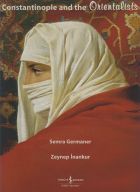
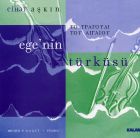
Cihat Aşkin, violin
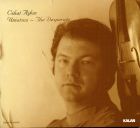
Cihat Aşkin, violin
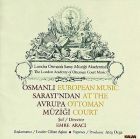
The London Academy of Ottoman Court Music, with Emre Aracı. Produced by Ates Orga,
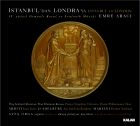
Prague Symphony Orchestra, directed by Emre Aracı, produced by Ateş Orga
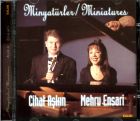
Cihat Aşkin, violin and Mehru Ensariu, piano
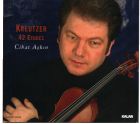
Cihat Aşkin, violin. Produced by Ateş Orga
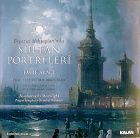
The Prague Symphony Chamber Orchestra with Cihat Askin, violin. Directed by Emre Araci and produced by Ateş Orga

Cornucopia works in partnership with the digital publishing platform Exact Editions to offer individual and institutional subscribers unlimited access to a searchable archive of fascinating back issues and every newly published issue. The digital edition of Cornucopia is available cross-platform on web, iOS and Android and offers a comprehensive search function, allowing the title’s cultural content to be delved into at the touch of a button.
Digital Subscription: £18.99 / $18.99 (1 year)
Subscribe now